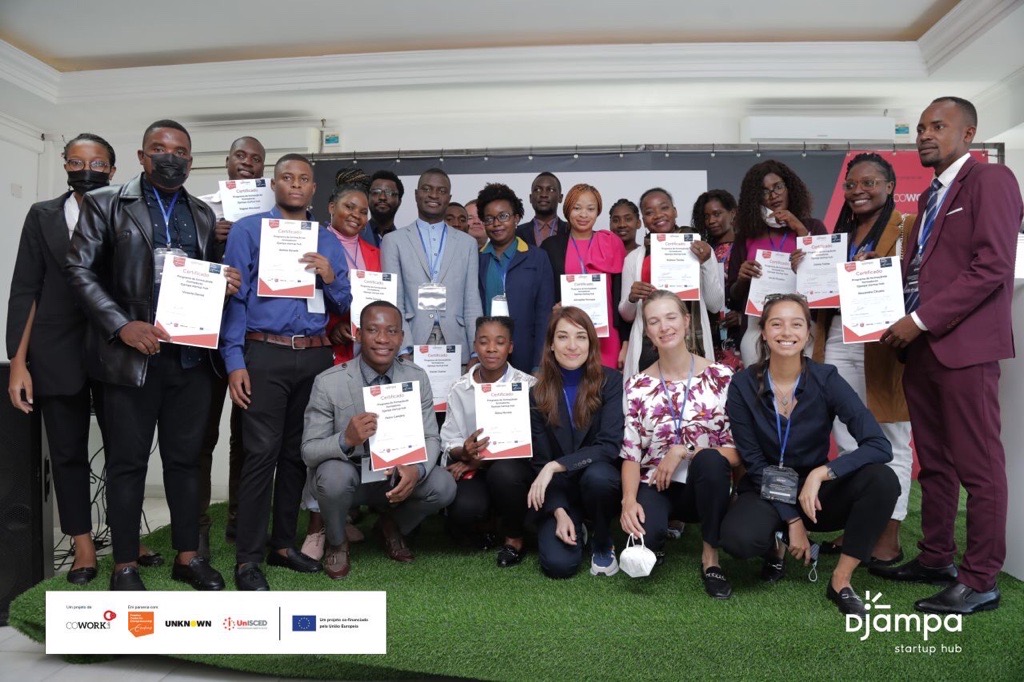Training the next generation of Mozambican entrepreneurs

This June, a team from Erasmus Centre for Entrepreneurship visited Mozambique to facilitate a train the trainer programme for 16 trainers from all provinces of the country. The training is part of a three-year EU project called Djampa, led by local co-working space provider CoWorkLab and in partnership with Unknown Group. The project aims to help form the next generation of Mozambican entrepreneurs and strengthen the local entrepreneurial ecosystem.
Nationwide impact
To achieve these goals, we are working on three activities in parallel. First, with the support of the first open university of Mozambique UniSCED, we established physical resource centres in every Mozambican province. These centres will be managed by the instructors that took part in the train the trainer programme. Second, we are delivering content on entrepreneurship for the Djampa e-learning platform, developed in-house by CoWork Lab. Thirdly, Unknown Group performed a mapping of the entrepreneurial ecosystem and will be involved in the organisation of entrepreneurship fairs and an edition of the Get in the Ring competition. Working in all of these areas allows us to impact entrepreneurs at different stages of their venture journey and, more importantly, across the whole country.

The centres are an essential resource for the communities, but much more than just a space to work, they will also act as incubators and ecosystem cohesion drivers. By using the entrepreneurship knowledge and tools explored during the training, and establishing key relationships with the ecosystem players of their provinces, the trainers will be able to coach entrepreneurs, foster an entrepreneurial mindset, and strengthen the Mozambique entrepreneurial system.
Local impact
The Mozambican context poses many challenges. In recent times, the social-economic crisis that has plagued the nation since the end of the civil in 1992 was deepened by the effects of Covid and the radical insurgency in the north that drove away crucial foreign investments. As a result, Mozambique features on the United Nations’ list of least developed countries. Furthermore, due to the significant differences in development among provinces, ensuring that entrepreneurs everywhere get support is fundamental for success.
During the week-long training, our team, strengthened by professors from Erasmus University Rotterdam and Utrecht University, familiarised the instructors with the essential entrepreneurial principles and tools needed so they can coach entrepreneurs and generate impact in their local communities through the resource centres.

What’s next?
We ended the week with Djampa’s official launching event, where the project was presented to the public. Attendees included representatives of the EU delegation to Mozambique and IPEM, the public agency supporting small and medium enterprises, and other ecosystem stakeholders. In addition to our work on the entrepreneurship e-learning platform, the second round of training will take place online early next year. To keep up with the trainers’ exciting projects and understand their experiences whilst managing the centres, the Erasmus Centre for Entrepreneurship’s team will continue to coach them throughout the project. By fostering these relationships and offering continuous support, we ensure local impact on a national scale.
Curious to know more about our international education projects? Reach out to Jip Dresia at education@ece.nl
